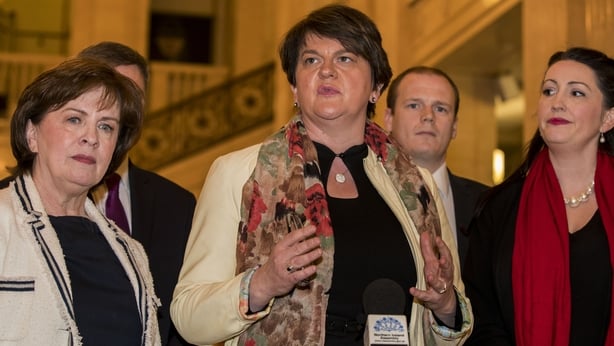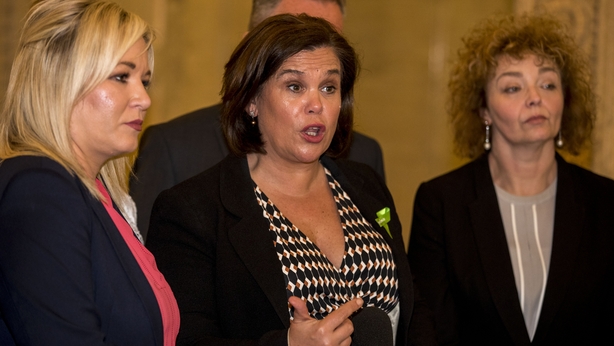The Irish and UK governments have outlined details of the talks format involving Northern Ireland's five main political parties to explore if the power-sharing administration can be restored.
It will involve weekly meetings of the political leaders - more frequent meetings will be called if required - with the creation of five working groups to examine the key logjams.
The five parties in the talks will be asked to nominate three representatives to each working group, which will meet for the first time later this week.
The working groups will focus on:
1. Programme for Government. This will be led by the head of the Northern Ireland Civil Service, David Sterling. The group will examine priority issues that would be in the in-tray of a future executive, including problems facing the health and education sectors and specific strategies for prosperity, industry and investment.
2. Transparency, accountability and the operation of the Executive. This will be led by the Permanent Secretary of the Northern Ireland Department of Finance, Sue Gray. It will build on previous discussions among the parties and consider further structural reforms if necessary.
3. Reform of the petition of concern. This will be led by Hugh Widdis, Departmental Solicitor and former Assembly Legal Counsel.
4. Rights, language and identity issues. This will be led by former Permanent Secretary of the Northern Ireland Department of Culture, Paul Sweeney.
5. Improving the sustainability, stability and operation of all the Good Friday Agreement institutions. This will be led by former Head of the Northern Ireland Civil Service, Malcolm McKibbin.
The governments said their representatives would "advise and support" the working groups when appropriate, but stressed that decisions on the key issues were a matter for the local parties.
The governments formally opened talks today to explore if the power-sharing administration can be restored following its collapse in January 2017.
We need your consent to load this rte-player contentWe use rte-player to manage extra content that can set cookies on your device and collect data about your activity. Please review their details and accept them to load the content.Manage Preferences
An appeal made to Northern Ireland's politicians by catholic priest, Fr Martin Magill, at Lyra McKee's funeral service a fortnight ago led to the establishment of the negotiations.
The 29-year-old journalist had been shot dead by dissident republicans who were trying to kill police officers in Derry.
Fr Magill's address in St Anne's Cathedral drew attention to the dangerous political vacuum caused by the lack of a devolved government.
The two governments will review progress in the talks before the end of this month.
Northern Ireland parties make power-sharing commitment after meeting
Political leaders in Northern Ireland have vowed to strive for a deal to restore power-sharing.
The leaders of the five main parties acknowledged mounting public impatience and anger at the stalemate.
DUP leader Arlene Foster said she would enter the talks with a "good heart" and with determination to find a solution.

Sinn Féin leader Mary Lou McDonald said her party was ready to "do the business".

Northern Ireland Secretary Karen Bradley said: "There are some very significant challenges and this is not going to be easy, and therefore I'd ask that we all give the parties time and space to allow them to address these difficult issues and to come to the right conclusion for the people of Northern Ireland, which is the restoration of devolution".
Minister for Foreign Affairs Simon Coveney described the first meeting as constructive and positive but said "clearly we've a lot of work to do".
On the eve of today's talks, the British government announced more than £100m in funding for Derry.
The funds are intended to tackle deprivation and youth unemployment and are in addition to £350m already pledged to Belfast.
Additional Reporting: Tommie Gorman

